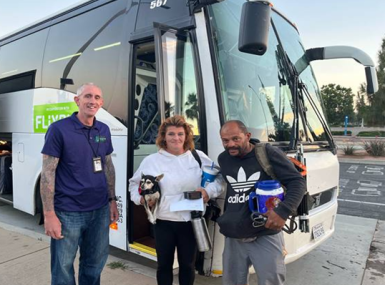Counties call on FCC for assistance and cooperation during COVID-19 crisis
Upcoming Events
Related News

Key Takeaways
On March 20, the National Association of Counties sent a letter to the Federal Communications Commission (FCC) Chairman Ajit Pai requesting additional assistance and cooperation from the FCC as counties respond to the ongoing COVID-19 crisis. The letter was joined by the National League of Cities, U.S. Conference of Mayor and the National Association of Telecommunications Officers and Advisors.
In the letter, NACo requested the FCC to take five actions to alleviate the strain on businesses, families, and local governments caused by the digital divide:
- Temporarily suspend comment periods during the crisis and extend them for a reasonable amount of time: Local governments are critical stakeholders for rulemaking activity, and their feedback is vital to good governance. However, these entities are rightly focused for now on ensuring that the basic needs of their residents are met and lack the additional capacity to provide feedback on open proceedings.
- Expand access to Lifeline: Students and many workers are attempting to learn and work remotely for the first time, but too many of these households lack in-home broadband service and are cut off from other options of last resort, such as libraries and businesses. Other residents are finding them newly eligible, as they face job loss and income reduction from the economic impacts of the crisis. The FCC should work to loosen participation requirements in Lifeline, streamline the process for onboarding of new participants, and expand awareness of the program for eligible populations.
- Expand access to telehealth: Utilization of telehealth options can and should expand during the outbreak, particularly as federal health care programs expand reimbursement eligibility for telehealth services. The FCC should expand funding for the Rural Health Care Program during the current program year and extend filing deadlines to ensure flexibility for providers.
- Leverage the E-Rate program to reach households: The E-Rate program has historically been limited to the on-premises facilities of anchor institutions. However, most of these facilities have been forced to close to limit the spread of COVID-19. The FCC should authorize emergency funding through E-Rate and other USF programs to allow for rapidly expanded hot-spot lending to households and allow schools and libraries to offer connectivity to surrounding homes and parking areas during closures without risking E-Rate funding.
- Encourage additional action from partner ISPs: We appreciate the actions taken by parties to the Keep Americans Connected Pledge, but we hope those providers will go further. Several companies have taken steps to lift data caps and overage fees, prioritize outreach and connection for educational and healthcare institutions, expand eligibility for low-cost programs, and expand speeds of those low-cost programs, and we hope that all providers will take that action during the crisis.
NACo launched a website – Coronavirus Disease 2019 (COVID-19): County Response Efforts and Priorities – to assist county officials to respond to COVID-19. This website includes advocacy action items, federal policy resources, steps counties haven taken, county and state emergency declarations and other resources for county officials.
UPDATE
The FCC’s Wireline Competition Bureau (WCB) released a Public Notice March 26 reminidng schools and libraries that are closed due to the coronavirus COVID-19 outbreak that they are permitted to allow the general public to use E-Rate-supported Wi-Fi networks while on the school's campus or library property.
Related News

U.S House Subcommittee Considers Reauthorization of the State and Local Cybersecurity Grant Program
The SLCGP provides critical funding to state and local governments to enhance cybersecurity readiness and protection but is set to expire on September 30, 2025.

Team approach, website help California county tackle homelessness
Riverside County, Calif. created a multidisciplinary team to better and more efficiently serve its unsheltered population and share success stories and data through a website.

Podcast: The CIO Reserves
Greenbrier County, W.Va. Commissioner Tammy Tincher, Cook County, Ill. CIO Tom Lynch and NACo CIO Rita Reynolds discuss the pilot CIO Reserves program, which offers IT experts to help rural counties assess their technology and cybersecurity needs.
